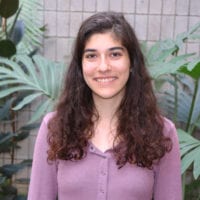
The Sweet Potato Expression Atlas
The domesticated sweet potato (Ipomoea batatas) is a staple food, particularly in sub-Saharan Africa. It has many nutritional benefits, including high carbohydrate, fiber, and vitamin content. Ensuring a hearty and healthy sweet potato crop is therefore crucial to maintaining this important food source. Current threats to sweet potato yield include drought, certain fungal diseases including root rot, and sweet potato weevils, incredibly damaging pests. Creating a crop that is both resistant to these threats and has greater starch and protein yields could be possible by turning to the 14 crop wild relatives of sweet potato, each of which has unique traits that could improve sweet potato growth. The genomes of two of these relatives, I. trifida and I. triloba, have recently been sequenced. Using these genomes and existing transcriptomic data collected from these relatives under a variety of stress conditions, genes and networks of interest can be identified for further study.
Such study is made more accessible through the creation of a sweet potato gene expression atlas, a web-based tool that allows users to view levels of gene expression in these two species through a variety of graphical tools. With the atlas, the location and conditions under which genes are differentially expressed can be visualized while coregulated genes can be easily identified, suggesting potential relations and pathways. This tool was created with HTML and JavaScript making up the webpage and a Perl controller accessing a PostgreSQL database. The gene expression atlas will make it easier to develop hypotheses about gene function and differences between these two species of Ipomoea, information which could lead to discoveries that can increase I. batatas yields and maintain this staple crop’s productivity under conditions of biotic and abiotic stress.
My Experience
Through my work in the Mueller Lab this summer, I gained a great appreciation for open and accessible science. Being in an environment where our work aimed to make research available to all, which could, in turn, improve not only crop production but also benefit lives gave this project a clear purpose. Seeing the collaborative nature of the lab was also motivating, especially since the Mueller Lab is a non-traditional computational group, and demonstrated to me how bioinformatics requires just as much communication as traditional research. This sense of working for a common goal will stay with me as I continue my career as a scientist.
At BTI, I learned new computing languages and became very familiar with the troubleshooting process. With the help of my mentor, I feel more confident in my abilities as a computational biologist and have strengthened my desire to work on similar projects that combine technology with biology. Through my experiences both in the lab and with my fellow students, I feel more assured about continuing with my educational journey in graduate school and am grateful to everyone who made this program possible.
